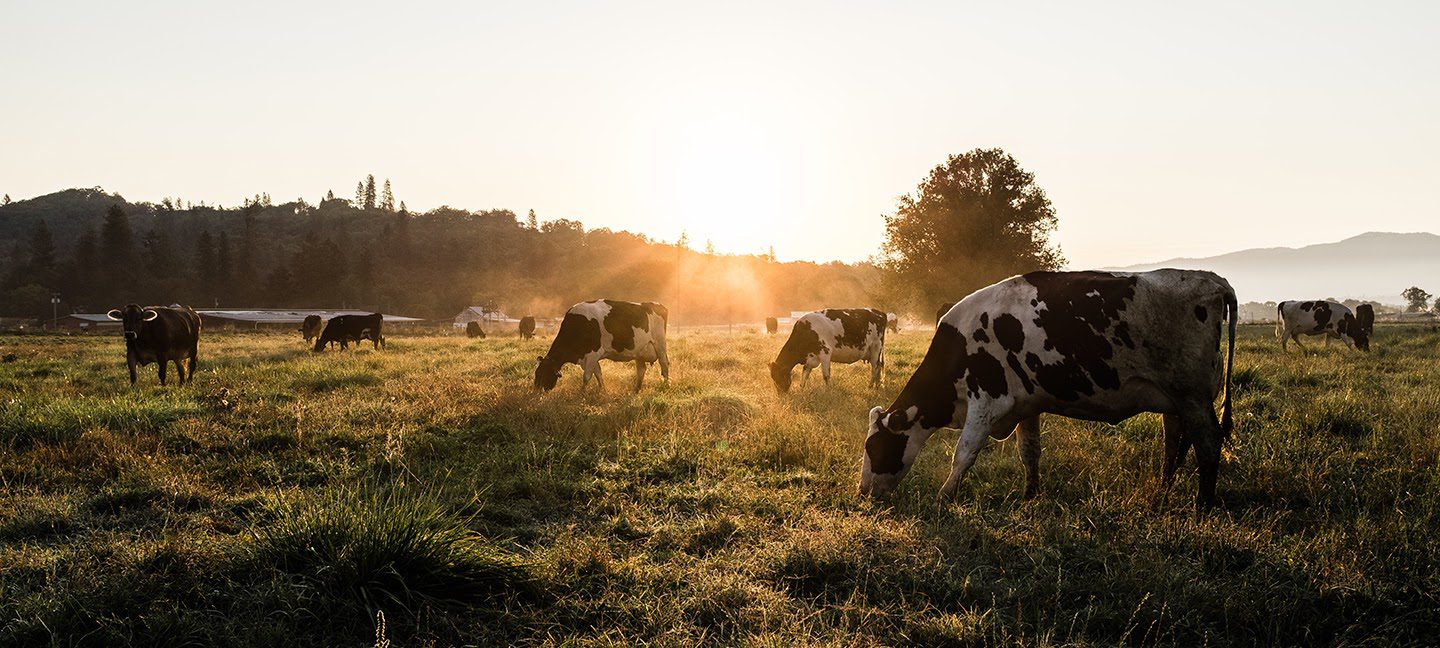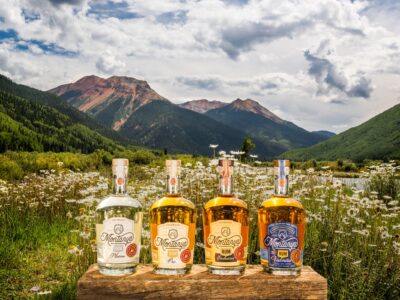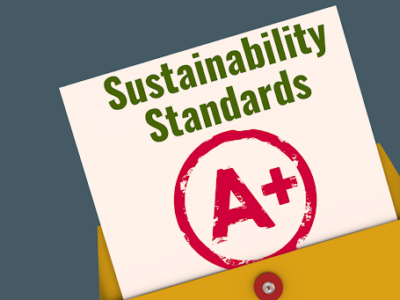Despite having undergone multiple iterations over the past century, Oregon-based Rogue Creamery has labored unfailingly to make sure it was putting good into the world. As the Rogue River Valley Co-op, it helped small dairy farmers make a living during the Great Depression. As the Sonoma Valley Cheese Factory, Plant No. III, it sent four million pounds of cheddar to troops during World War II. And over the past 20 years, as Rogue Creamery, owner David Gremmels has stayed true to former management’s intentions. While creating one award-winning artisan cheese after another, the Rogue team has actively contributed to environmental and social initiatives; in the words of Cheese Emissary and Marketing Manager Marguerite Merritt, “we’re a small business with big ambitions and an even bigger heart.”
In 2003 Rogue Creamery’s Rogue River Blue was bestowed with the title of “World’s Best Blue Cheese” at the World Cheese Awards in London, marking the beginning of a long list of accolades to come. New ranges of blue cheeses and cheddars have since garnered recognition from cheese-lovers everywhere: “Best American Cheese,” “Best in Show,” and “Outstanding Product Line,” and the list goes on. As Merritt describes, “what makes our blue cheeses distinct is the savory yet sweet flavors that are found in our particular recipe and the milk that we use. . . what we’re trying to do is to create a blue cheese that’s a little more moderate and can be paired with a variety of different wines or in different recipes and can be enjoyed all by itself, too.” In other words, a product that will “introduce people to all that blue cheeses can be.” It is fitting that the blue cheese that propelled it to fame was also honored with one of the creamery’s most prestigious awards in 2019: the first American product to be crowned World Champion Cheese at the World Cheese Awards, an honor for which 3,800 cheeses from 42 countries were vying.
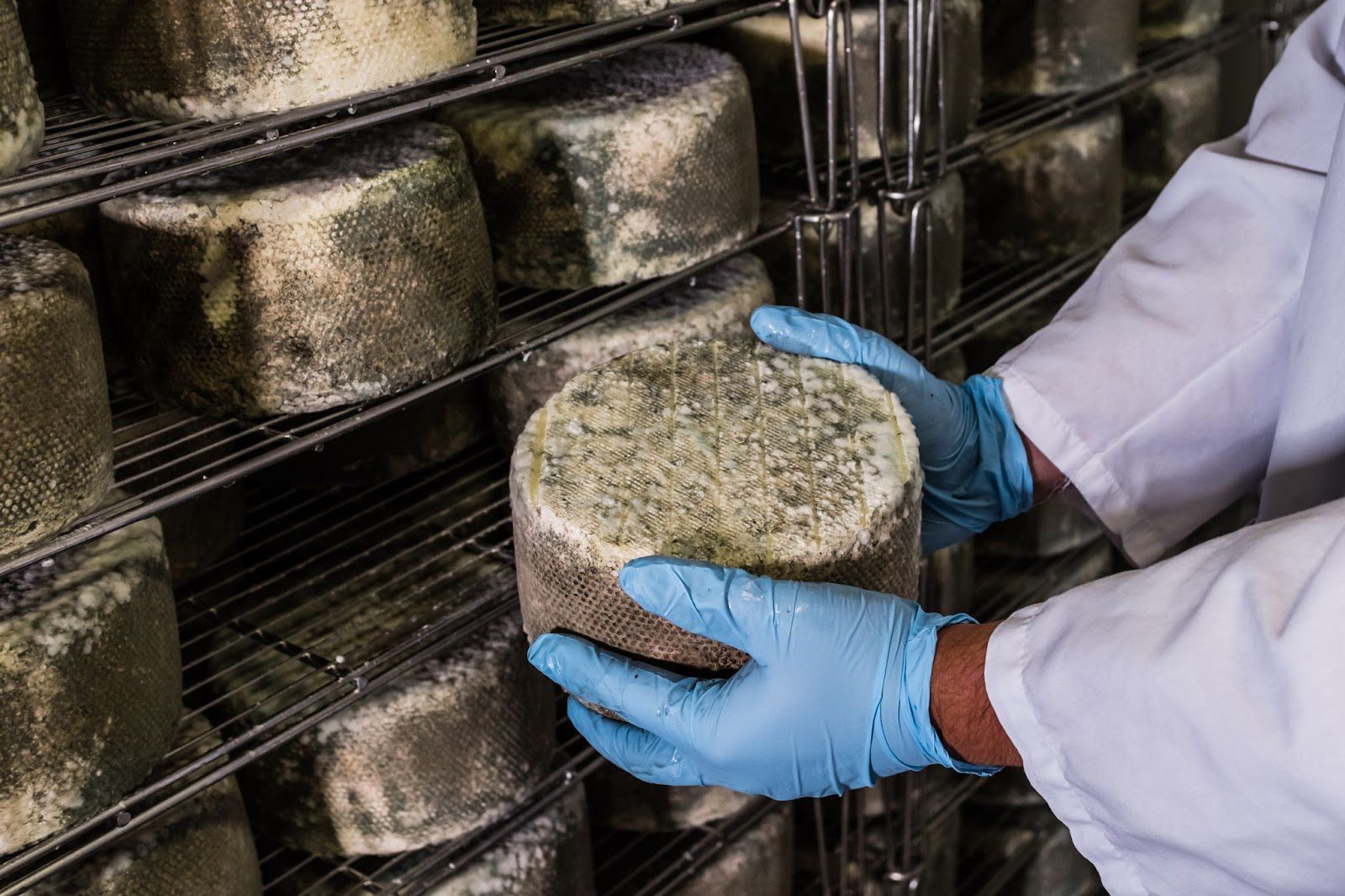
It is no surprise that Rogue Creamery has also been acknowledged for its environmental efforts, which are just as extensive as its lines of cheeses. For example, it has found itself in the Oregon Business Hall of Fame by consistently ranking among the annual “100 Best Green Workplaces in Oregon,” coming in at number ten in 2020. USDA Certified Organic since 2016, the creamery is committed to the “highest standards of farming practices and quality of our milk.” That includes preserving the quality of soil, water, native plant growth, and biodiverse ecosystems through efforts like rotational grazing and restrained irrigation.
Animal Welfare Review Certified, it is also guaranteed that the dairy cows are provided with clean accommodations, plus 68 acres for grazing. Technological innovations, such as a waste repurposing system, enhance the sustainability of dairy operations. A robotic milking system in the loafing barn lovingly entitled ‘the Cow Palace’ is perhaps most impressive. According to Merritt, the cows “choose when they’d like to be milked, and that can be day or night; it can be three times a day or once a day depending on their personal preference and lactation cycle. And it improves their quality of life immensely, and it gives them so much more freedom and a much more natural cycle.”
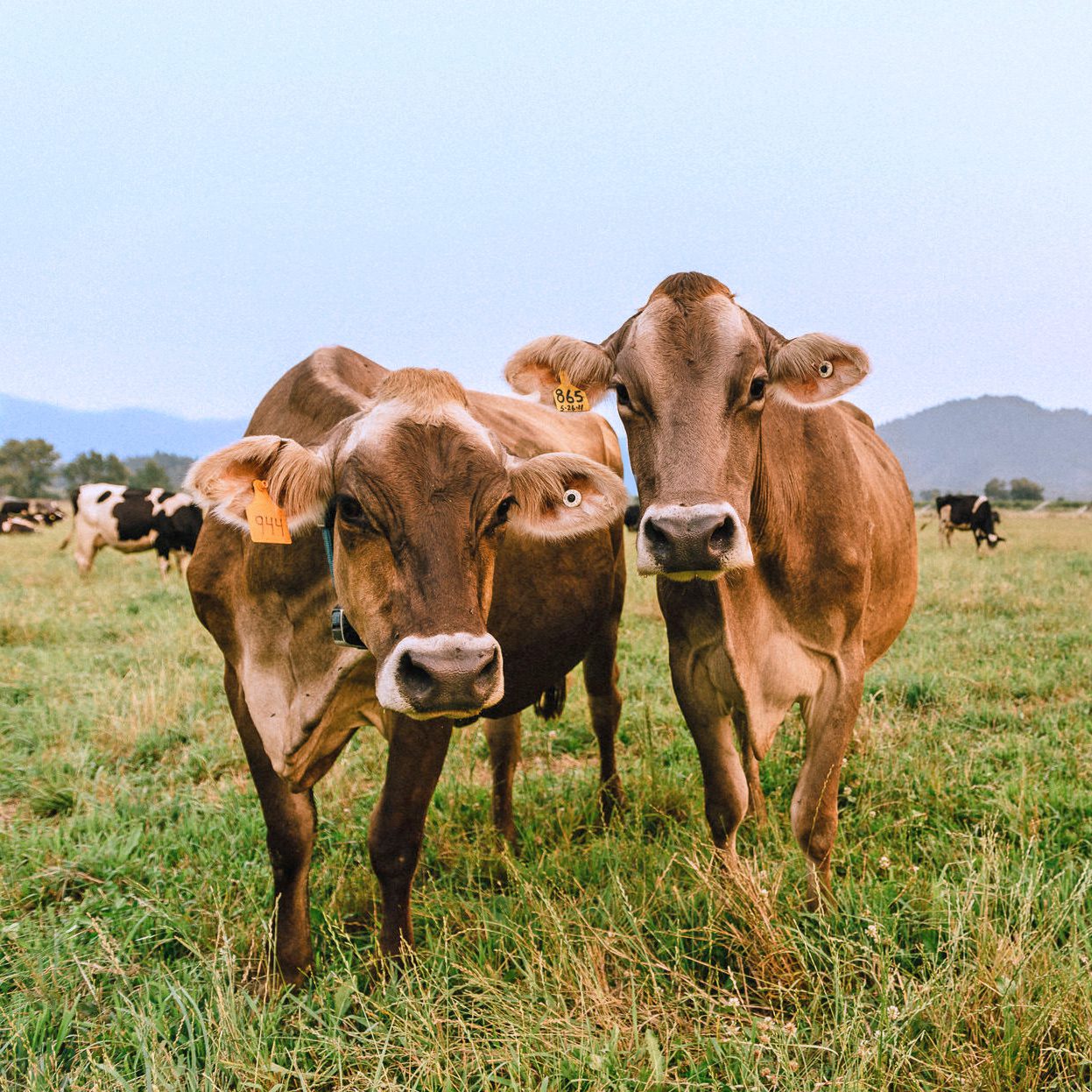
The creamery’s environmentally-friendly efforts are not limited to the dairy farm, it is equally active in renewable energy. Rogue Creamery decided to install 253 solar panels on its cheesemaking facility in 2009. With an additional photovoltaic system installed on the farm, solar power now accounts for 22-30 percent of the energy used each year and avoids 1.1 million pounds of carbon emissions. Even though the solar panels represented a significant initial investment, these projects will “really help us offset our carbon footprint and find ways to be more independent of the grid,” says Merritt. Automatic dimming and brightening features of their LED lighting likewise help conserve energy, with the additional benefits of “comfort and safety for both cows and team members,” Gremmels told Energy Trust Blog.
Rogue has even expanded its efforts into clean transportation, with the company car being electric and EV charging stations located at multiple facilities. Plus, the optional Nellie Green Pedal Power Program encourages employees to commute sustainably. In return for pledging to use some type of green transportation for 45 round trip commutes in their first year, they are given a company bike or a monthly bonus. The result: staff traveled 11,838 sustainable miles in 2019, effectively avoiding 9,352 pounds of carbon emissions. And with goals to become 100 percent renewable by the end of the decade, Rogue Creamery’s green status is bound to become even more impressive.
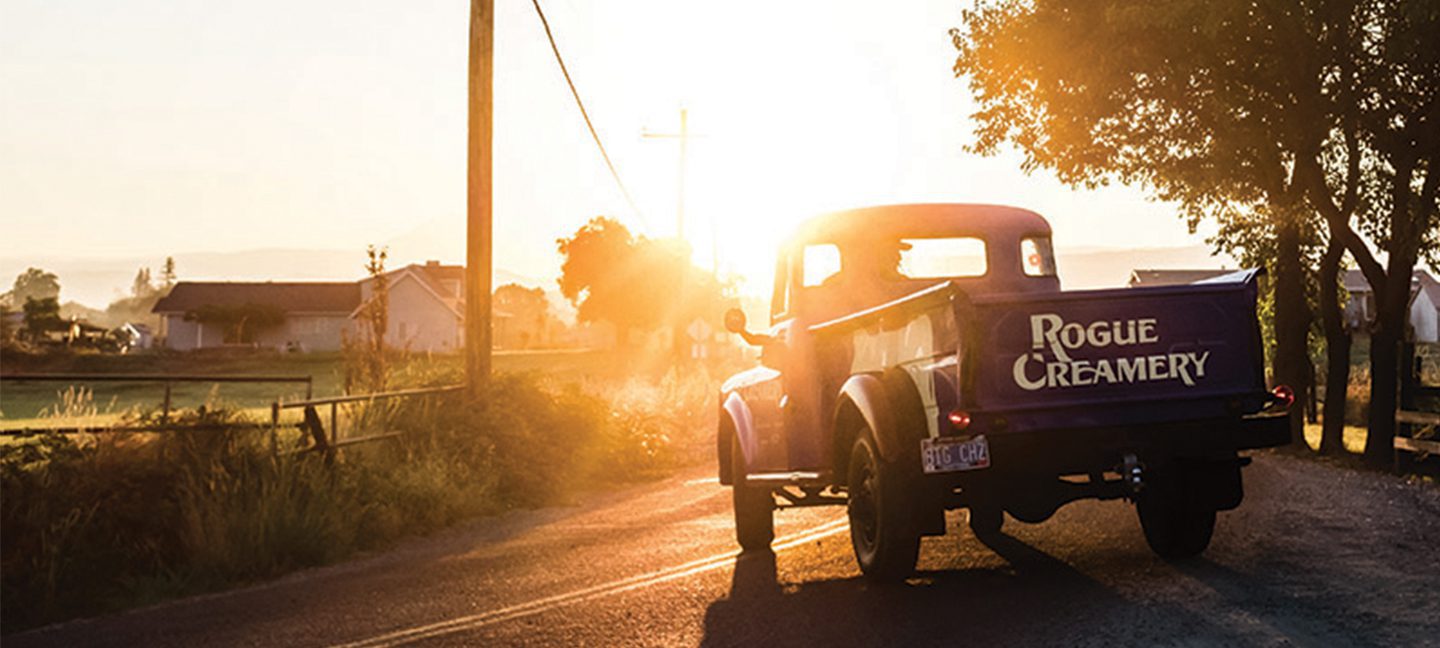
Green is great, but Gremmels also cares about the employees. Although she has been with Rogue Creamery for three years, Merritt understands why she is one of the newer hires: “we’ve got people who have been with the company 10 plus years and counting. People are very committed to this organization because Rogue Creamery is committed to its employees and to offering a fair wage, to providing employees with plenty of opportunities to grow their expertise.” Rogue is there for their team in times of hardship, offering team members paid time off when they need it and even raising $23,588 for four employees who lost their homes in the Alameda fire last September. Employees are also encouraged to give back to the local community, with paid time off for volunteering and a team vote on their top ten charities each year that decides which organizations will receive financial donations.
Donations are a big part of Rogue Creamery’s mission; however, as Gremmels wrote in an op-ed for the Portland Business Journal, “sometimes I just love seeing myself listed as ‘Anonymous’ at the top of the donor list.” The creamery lends out a helping hand through their cheese, too. Beyond their usual donations of popular products to nearby food banks and fundraisers, they also launched Cheese is Love™ Cheddar in January to address the “financial and nutritional strain in our community” in the aftermath of the Alameda fire, which left over 2,500 families homeless and hungry. The need in the community was so significant, though, that “after a few months, right after the fires, of just donating as much as we could, we realized that it really wasn’t sustainable for our business. . . so we instituted the Cheese is Love Program to allow our customers to help us continue to donate in the long run and make it sustainable in the long-term,” Merritt recalls. Every pound of the cheddar purchased is matched by a pound donated; with over 1,500 pounds of cheese donated through the campaign so far, in addition to the 2,000 pounds donated before its launch, Rogue is well on track to exceed 5,000 pounds by the first anniversary of the fire in September.
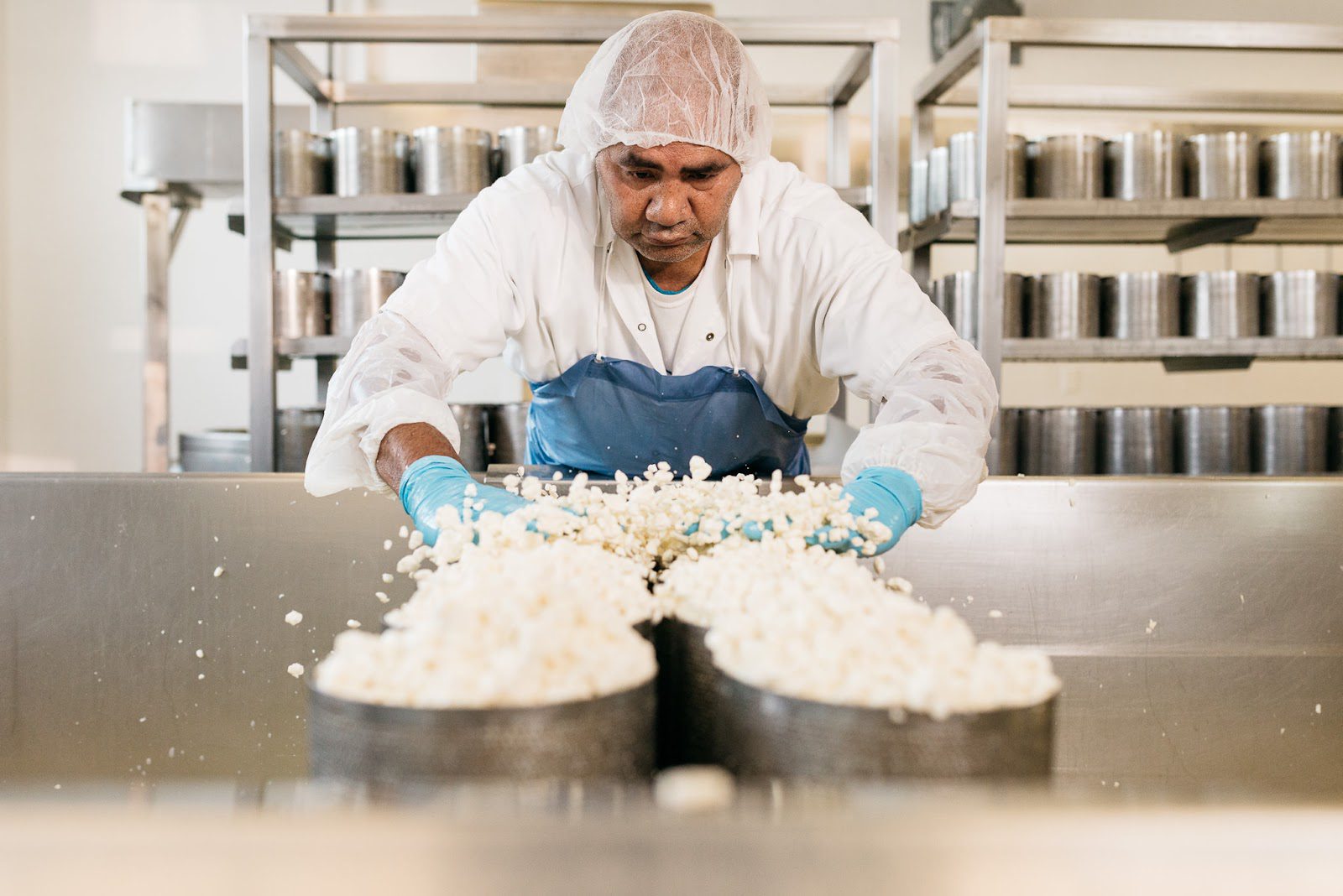
Rogue Creamery’s mission indeed permeates through every aspect of its business. Merritt reflects that “our commitment to our mission is a fundamental aspect of who we are as a business entity. It’s what allows us to continue striving to do better and to inspire future generations of cheesemakers to themselves innovate new and exciting cheeses and opportunities. We strongly believe that by creating a foundation focused on sustainability and community service, that we can build a better future for our cheese industry, for our community, and for business at large.” We expect to see them continue innovating, inspiring, and giving back for decades to come.

